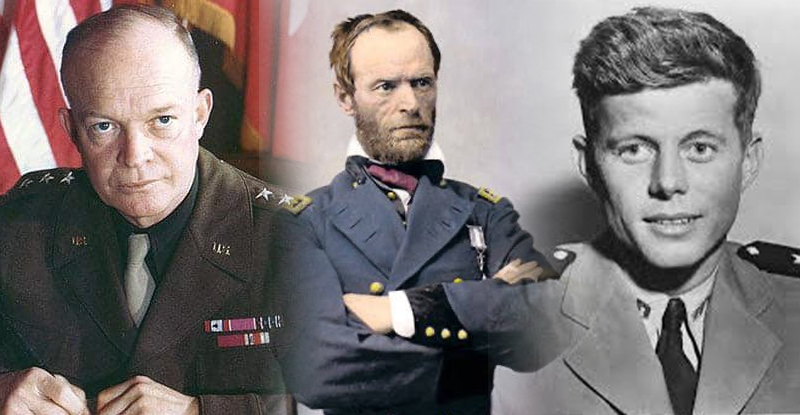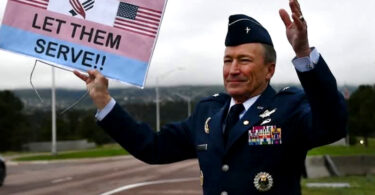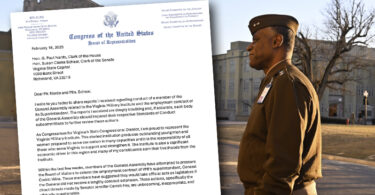By @InfantryDort on X, active duty Army Major
Tortured Warrior XIII: Dwight D. Eisenhower
The Torment
Eisenhower was not born into greatness. As a young officer in the interwar Army, he languished in obscurity. He missed combat in World War I, stuck training tank crews while others forged reputations at the front. He carried bitterness, wondering if he would ever matter. Worse, he lived on a meager officer’s pay with a young family, often on the edge of debt.
The Breaking Point
In the 1920s, Eisenhower nearly saw his career end in scandal. He invested in a private club in Washington, D.C., hoping to supplement his income. When the project failed, he was accused of improperly using his position to profit — a violation of military regulations. Whispers of court-martial swirled. For a time his future hung by a thread. Though he escaped formal charges, the episode branded him reckless in the eyes of some superiors. Combined with his missed chance in the Great War, it left him feeling cursed, a forgotten major stumbling through mediocrity with disgrace at his heels.
The Transcendence
But Eisenhower endured. He buried himself in study, writing exhaustive reports and war plans that few read at the time. He survived humiliation and irrelevance, waiting for destiny. When World War II came, the man once threatened with court-martial rose almost overnight. From obscure staff officer he became Supreme Allied Commander, leading millions in the greatest coalition war ever fought. Later, he bore the mantle of the presidency, guiding America through the nuclear age.
The tortured warrior shows that even near disgrace can be a forge. Eisenhower’s scars taught him caution, humility, and patience — the very traits that steadied him when the weight of the free world rested on his shoulders.
—
Tortured Warrior XIV: William Tecumseh Sherman
The Torment
Sherman was haunted long before the Civil War. His father died when he was a boy, leaving him to be raised by foster parents. He grew into manhood restless, anxious, and uneasy. His mind was sharp but turbulent, a storm of brilliance and doubt. When war erupted, he was given command in Kentucky — and the weight of responsibility pressed down like an iron hand.
The Breaking Point
The strain crushed him. Sherman convinced himself Confederate forces were far larger than they were. His nerves unraveled. He became erratic, sleepless, and paranoid. Newspapers mocked him as insane. A reporter called him “deranged.” He was relieved of command, humiliated before the nation, abandoned to whispers of madness. For weeks he wandered the edge of collapse, a broken officer who seemed finished before the war had even begun.
The Transcendence
Yet Sherman returned. With time and the steadying hand of Grant, he clawed back from the abyss. And when he rose, he rose with fire. He became the master of maneuver and the embodiment of total war. From Chattanooga to Atlanta to the March to the Sea, he broke the Confederacy’s will. The same restless mind that once unraveled became the engine of ruthless genius.
The tortured warrior is not the man without scars. He is the man who bends them into weapons. Sherman proved that even madness can be reforged into brilliance — and that the soldier once called insane could help save a nation.
—
Tortured Warrior XV: John F. Kennedy
The Torment
Kennedy was born into privilege but carried torment in his body from childhood. He was frail and sickly, plagued by chronic back pain and Addison’s disease. He spent long stretches in hospitals, nearly dying more than once. Behind the polished smile lived a man in constant physical agony, propped up by braces and medicine. He yearned to prove he was more than the weak son of a powerful family.
The Breaking Point
In World War II, commanding PT-109 in the Pacific, Kennedy’s boat was cut in half by a Japanese destroyer. Two of his crew were killed instantly. The survivors clung to wreckage in the dark. Kennedy swam miles through open water with a strap clenched in his teeth, dragging a wounded man behind him. He led his men to an island, starving and stranded, with no certainty of rescue. Each stroke shredded his injured back, each day gnawed at his resolve. Many expected him to collapse, but he did not.
The Transcendence
Kennedy kept his men alive until they were saved. He returned home a hero, but the physical torment never left him. His back pain worsened, his health remained fragile, yet he rose through politics with charisma and fire. He became the youngest elected President in U.S. history, bearing the weight of the Cold War, staring down nuclear annihilation in the Cuban Missile Crisis.
The tortured warrior is not always the strongest in body. Sometimes he is the one who fights through constant pain, who drags himself forward when others would fall. John F. Kennedy proved that frailty and torment can be hidden beneath resolve — and that a broken body can still carry the fate of a nation.








Leave a Comment